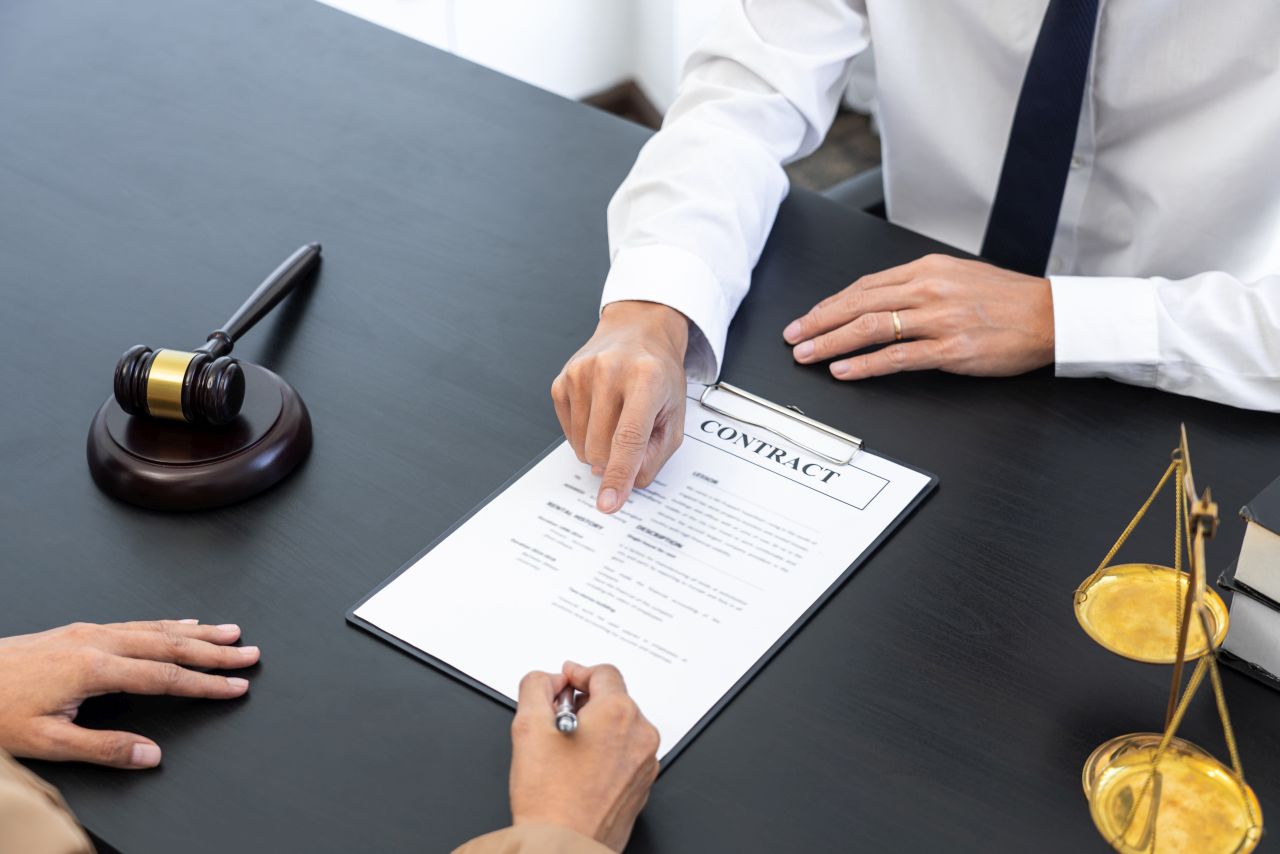Who Pays the Bills? Detailed overview of how your personal injury settlements are distributed. A…

WHAT IS A CONTINGENCY FEE AGREEMENT AND WHY ARE THEY USED?
WHAT IS A CONTINGENCY FEE AGREEMENT AND WHY ARE THEY USED?
Common questions people ask us are:
- Why does the firm use contingency fee agreements?
- Why not charge a one-time fee or charge by the hour?
- Doesn’t it help the lawyer more than me?
- How does the contingency fee agreement help me?
To answer these questions, we need to review how lawyers are compensated for the legal services they provide. How lawyers are paid varies – based upon the type of legal help needed. There are three primary methods lawyers use to calculate compensation:
- hourly
- flat fee; and
- contingent fee.
An Hourly Fee is when the lawyer bills a certain amount for each hour of work performed. In many cases, the lawyer requires a “retainer” in advance. The “retainer” is a sum of money paid to the lawyer before any work is performed. It is like a “down payment” or a “deposit.” The amount of the retainer is traditionally an amount that would cover the expected cost of the work to be performed – or a least enough to cover the cost of the initial work on the file. The funds are held in a trust account by the lawyer, and the funds are removed from the account to pay the lawyer’s bill as the work is performed. The funds are applied to the hours of work completed and billed by the lawyer. When the retainer is used up the client is billed monthly for the hours of legal work performed. The Hourly Fee system is used for most types of legal work, such as criminal cases, business cases, and divorce cases.
A Flat Fee is when you make a one-time payment to the lawyer to perform a specific legal service. This one-time payment is usually for simple legal matters such as drafting a Will, a contract, handling a traffic ticket, or other simple matter. A flat fee is paid directly to the lawyer by the client – usually in advance of the work completed.
A Contingent Fee arrangement allows people who need help with a legal claim, but do not have the money to pay for a lawyer. This arrangement is primarily used in personal injury claims, worker’s compensation claims, and debt recovery. A Contingency Fee agreement is a written contract signed by the client that provides that the client pays a percentage of the money recovered in the case to the lawyer for the lawyer’s fee. The payment of the lawyer’s fee is therefore contingent upon the recovery of money.
Contingent Fee agreements provide people who have a legitimate claim the ability to hire a lawyer to help them recover money from another party through the court system. Most contingent fee agreements provide that if there is no recovery of money, then the lawyer does not get a fee. This allows the client to get legal help without having to prepay legal expenses. It also means that if your claim is not successful you are not stuck having to pay the lawyer a fee.
Contingent fee agreements allow the lawyer in that the more they recover for the client, the greater their fee will be based on the percentage charged. A contingent fee agreement does not help the lawyer more than you. The agreement motivates the lawyer to do their hardest to ensure you can recover the most amount of money possible for your claim. If the lawyer worked on an hourly basis there is little to no motivation for the lawyer to work as quickly as possible to get the case settled. The lawyer’s fee that is based on contingent also motivates harder work and determination to get the best possible outcome for the client.
Without contingent fee agreements, people would have to pay the lawyers up front hourly or as the work is performed. People who do not have money would be denied the right to make legitimate claims. Only the rich would be able to afford good lawyers. People with little or no money would suffer without access to legal help. Our justice system would favor only the rich and discriminate against the less fortunate. But with the contingent fee agreement, a person with little means could hire the best possible lawyer to be paid out of the recovery of the case at a later date.
HOW IS THE CONTINGENCY FEE PERCENTAGE DETERMINED?
The percentage the lawyer charges is sometimes determined by industry standards, and as set out in the State Bar Rules of Professional Conduct (RPC). In the State of Washington RPC 1.5 governs how lawyers may charge for fees.
For personal injury work, the industry standard percentage is 40%, although many lawyers still charge 33.3%. In some cases, the percentage charged is limited by other state or federal laws. The percentage charged for representing a client in a Worker’s Compensation claim is limited by state statute. There are different rate for different types of recoveries, ranging from 15% to 30. See RCW 51.52.120.
If a person is making an injury claim against the Federal Government under the Federal Tort Claims Act (FTCA), the amount of fees an injury lawyer can charge a client is limited in specific situations. Under 28 U.S. Code § 2678, “No attorney shall charge, demand, receive, or collect for services rendered, fees in excess of 25 per centum of any judgment rendered pursuant to section 1346(b) of this title or any settlement made pursuant to section 2677 of this title, or in excess of 20 per centum of any award, compromise, or settlement made pursuant to section 2672 of this title.” Further there are penalties for lawyers who do not follow the FTCA. “Any attorney who charges, demands, receives, or collects for services rendered in connection with such claim any amount in excess of that allowed under this section, if recovery be had, shall be fined not more than $2,000 or imprisoned not more than one year, or both.” See 28 U.S. Code § 2678.
WHAT ARE COSTS AND ARE THEY NOT INCLUDED IN THE CONTINGENT FEE?
In some contingency fee agreements, payment of the attorney fees and case costs will be paid at the end of the case from the recovery. Fees are for the time spent on the case. Case costs are the expenses incurred that to pursue the case. Some firms (like WEIERLAW) will advance all necessary out-of-pocket expenses necessary to make a strong legal case with the best chance to achieve a good recovery.
There are usually two types of costs. Prelitigation costs and trial costs. Prelitigation costs are the expenses needed to investigate, gather evidence to present your claim. These include charges for copies of medical records, bills, and reports; Police and investigation reports, copies, faxes, postage, and other incidental costs. Trial costs are the additional expenses necessary to pursue your claim in a civil lawsuit. These types of costs include, court filing fees, process server fees, and deposition transcripts. Some cases also require the assistance of investigators or experts to help prove specific issues – such as fault and cause of injuries.
Like with the lawyer’s fees, most people cannot afford to advance the costs necessary to prove their legal claim. Lawyers are allowed to “advance” these types of costs in the form of a loan outlined in a contingent fee agreement. According to the Washington State Bar Association, these costs may be paid back to the lawyer out of any money recovered – so long as the client remains responsible for repayment of the costs regardless of recovery. That is, the client is bound to pay the costs advanced even if the claim fails. The Bar Association requires this assurance of payment to avoid the appearance of “claim purchasing” – an illegal activity prohibited by the State Bar Association. In summary, the attorney’s fees for the time spent on the case may be charged as a contingent fee, but the case costs advanced may not be contingent on the outcome of the case.
In the WEIERLAW Representation and Fee Agreement, the contingent fee charges on a personal injury case is stated as one third 1/3 of the recovery, or thirty three and one third percent. 33.3%. This percentage remains fixed and does not increase with case complexity – like some other firms do if your case must go to trial. Our firm advances cost under the contingency fee agreement and will be repaid out of any recovery in addition to our fee. Our case costs are kept low compared to other lawyers. The case costs are frequently less than $1,000 for most straightforward cases settled without a lawsuit. For simpler cases filed in Court, the costs typically vary from $1,500 to $10,000. More complicated cases may have case costs considerably higher. However, the costs advanced on a case usually mirror the value of the case. That is, the higher the case value, the higher the typical costs advanced.



